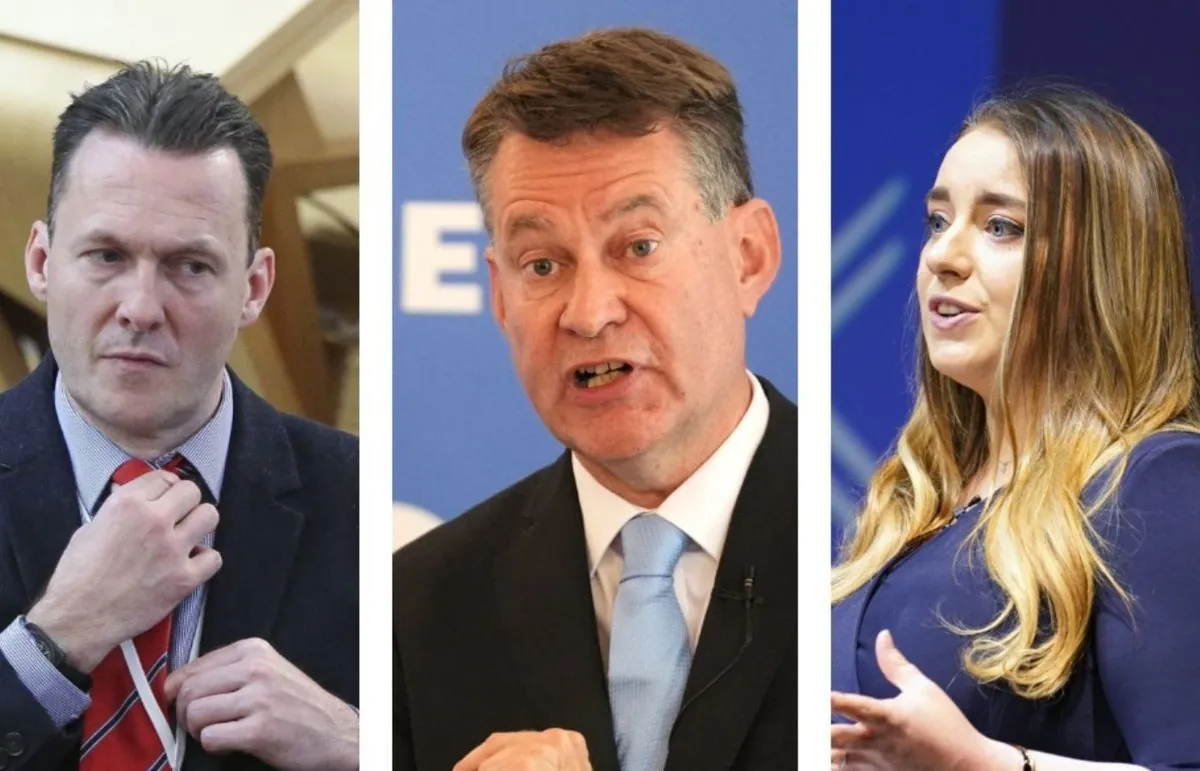Scottish Tory Leadership Race Sparks Internal Debate Over Party's Future
The Scottish Conservative leadership contest has ignited a heated debate over the party's structure and future direction. Former leader Baroness Davidson's endorsement has drawn criticism from fellow party members.

The Scottish Conservative Party leadership race has become a focal point of internal discord, highlighting deep-seated disagreements over the party's future direction. This contest, occurring in September 2024, has brought to the forefront discussions about party structure and its relationship with the UK-wide Conservative Party.
Baroness Ruth Davidson, who led the Scottish Conservatives from 2011 to 2019, has publicly endorsed Russell Findlay, viewed as the establishment's preferred candidate. Her support, however, has sparked controversy within party ranks.

Davidson's criticism centers on Murdo Fraser's proposal to establish a commission examining party structures, including its ties to the UK Conservatives. She characterized this as a "Trojan horse plan to split the party by stealth," a claim that has been vehemently disputed by Fraser's supporters.
"Nobody is proposing a separate party; there is no Trojan horse."
The debate over party structure comes in the wake of the Scottish Conservatives' disappointing performance in the July 2024 general election, where their vote share halved to 12.7%. This outcome has prompted calls for reform and reevaluation of the party's strategy.
Meghan Gallacher, another leadership contender and former deputy leader, has also expressed support for examining party structures. This aligns with a growing sentiment within the party for change and adaptation to Scotland's evolving political landscape.
The Scottish Conservative and Unionist Party, founded in 1912 and merged with the UK Conservative Party in 1965, has historically been stronger in rural areas of Scotland. Despite never being the largest party in the Scottish Parliament, it has played a significant role in Scottish politics, particularly under Davidson's leadership when it increased its MSP count from 15 to 31.
Critics of Davidson's intervention, including several MSPs, have accused her of misrepresenting the situation and encouraging misinformation. They argue that any recommendations from the proposed commission would require a two-thirds majority approval from party members, ensuring democratic decision-making.
As the leadership contest unfolds, with party members receiving their ballot papers, the Scottish Conservatives face a critical juncture. The debate extends beyond leadership selection, touching on fundamental questions about the party's identity, structure, and strategy in Scotland's unique political environment.
This internal discourse reflects broader challenges faced by the party, including its relationship with the UK Conservatives and its positioning in Scotland's complex political landscape. As the Scottish Young Conservatives and other party members look on, the outcome of this leadership race could significantly influence the party's future direction and electoral prospects.


































